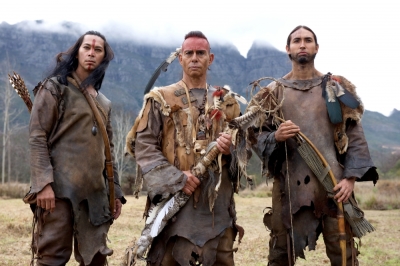7 Thanksgiving controversies: Date change, mentions of God, ‘Day of Mourning’
Day of Mourning

For some Native Americans, the Thanksgiving holiday is not about a family celebration but rather an annual reminder of the history of the violent European conquest of the continent.
Beginning in 1970, for example, the United American Indians of New England hold a “Day of Mourning” at modern Plymouth, Massachusetts, to remember the historic mistreatment of Native Americans by European colonists and, later, the United States government.
“Many Native people do not celebrate the arrival of the Pilgrims & other European settlers. Thanksgiving Day is a reminder of the genocide of millions of Native people, the theft of Native lands and the erasure of Native cultures,” stated UAINE.
“It is a day of remembrance and spiritual connection, as well as a protest against the racism and oppression that Indigenous people continue to experience worldwide.”
However, perspectives on the holiday among Native Americans is diverse, with a greater focus on celebrating a spirit of gratitude and thankfulness rather than focusing on the 1621 event.
“I will be spending Thanksgiving with my family. We don't actually celebrate the whole Pilgrim/Indian reasoning for the day. However, we do express our thankfulness for another year together,” said one Native American from Oklahoma interviewed by Smithsonian Magazine.
“We also don't really stick to the whole turkey & dressing meal. But we have a lot of our tribal foods like buffalo meat, corn soup and other dishes. To us, it's a day to be together.”
Pastor Ernest Custalow, who grew up on the Mattaponi Indian Reservation in Virginia, told The Christian Post in a 2014 interview that where he grew up, he did not “run into too many Indians who took exception to” Thanksgiving.
"We always celebrated it on our reservation,” he added.



























